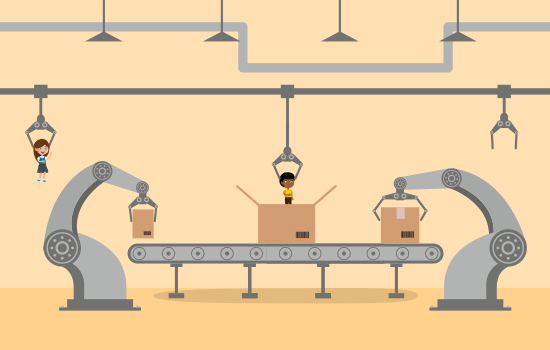Educators who want to meet students’ individual needs are stuck in a system that works against such efforts.
Over the past couple of years, education journals have published a flurry of articles on personalized learning, including an April 2018 Kappan column by Joshua Starr, executive director of PDK International. Starr points out that some contemporary proponents of personalized learning erroneously suggest that personalization is something new under the sun, as though today’s educators were the first to care about meeting students’ individual needs. As a longtime proponent of such efforts, I think Starr’s correct. If our schools haven’t provided much personalized learning until now, it isn’t because educators have lacked the necessary compassion or skills. Rather, it is because they’ve had to operate in a system that constrains such work.
For example, the age-graded structure by which we group children fails to recognize that the age of a child isn’t the most accurate indication of that child’s learning development, nor does it take into account the fact that all of us learn different things at different speeds at different times in our lives. The system keeps children moving along the school conveyor belt at the same pace for 13 years, no matter how much those children vary in their learning. This is no fault of educators. The age-graded structure makes time the constant and learning the variable.
Or consider the fact that the school system compels all children to follow the same curriculum, instead of learning in a way that best suits the individual child. A significant percentage of children come to the system as active learners who have acquired an enormous number of skills in the first four or five years of their lives only to become quickly classified as slow learners or learning disabled because they do not learn in the way that the system teaches. Again, if the system neglects to provide multiple pathways for children to learn, that is not the fault of educators.
What’s needed, therefore, is deep and systemic change in the ways we organize instruction, freeing educators to personalize learning in ways that many of us have always aspired to do. If we can change the relationship between time and learning — so that time becomes the variable and learning the constant — then educators will be much better able to help students take greater responsibility for and ownership of their own learning.
Achieving this deep systemic change is a daunting task. It requires us to replace almost all the underlying assumptions upon which the present system is based — including the reliance on age-graded cohorts, Carnegie Units, final course grades, semester schedules, and so on — with ones that align with what we know about how human beings learn best. These organizational features of K-12 schooling are familiar parts of American culture, defining what we think of as the normal way to progress through the childhood years. So if we’re serious about making deep and systemic educational changes, then we have to recognize that this also implies profound cultural changes.
Of course, cultural change requires persistent and patient efforts. It’s not as simple as adopting a new school schedule or delivery system or more flexible policy for moving students from grade to grade. Those of us who advocate personalized learning, therefore, need to be careful not to impugn the motives of colleagues who aren’t ready to jump on board with the latest organizational reform or the newest one-to-one adaptive computer program. Instead of suggesting that we’re better than they are — or that they don’t care about meeting students’ individual needs — we need to be committed to doing the hard, patient work of systemic and cultural change, taking for granted that our colleagues are also motivated to help children learn. Rather than claiming to be the only real champions of personalized learning, we need to work together to free everybody from a system that prevents us from doing what we became educators to do.
Reference
Starr, J.P. (2018). Let’s be precise about personalization. Phi Delta Kappan, 99 (7), 72-73.
Citation: Cirasuolo, J.J. (2019). Backtalk: A call for systemic change for personalized learning. Phi Delta Kappan, 100 (8), 80.
ABOUT THE AUTHOR

Joseph J. Cirasuolo
JOSEPH J. CIRASUOLO is the retired executive director of the Connecticut Association of Public School Superintendents.










